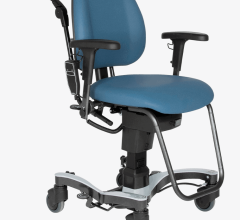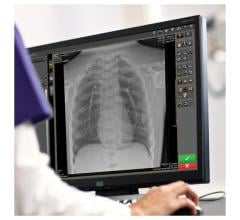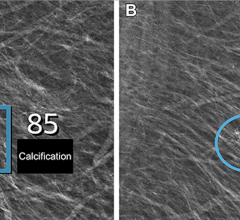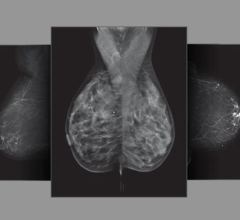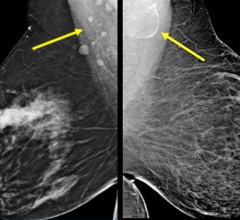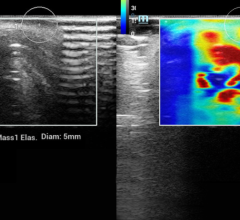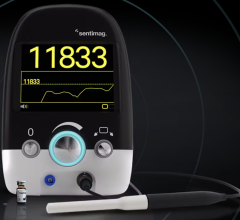
November 14, 2011 - U-Systems announced the U.S. Food and Drug Administration (FDA) has accepted for review the premarket approval (PMA) application for breast cancer screening indication for use for the somo•v Automated Breast Ultrasound (ABUS) system. The system is currently FDA-cleared for diagnostic use as an adjunct to mammography.
The statistical data for the PMA submission was a result of a multi-reader, multi-case (MRMC) ROC Reader Study conducted by a team from the University of Chicago. “We are encouraged that the data included in the PMA has been accepted by the FDA for review as we strongly believe it provides a solid scientific basis for the use of breast ultrasound as an adjunctive cancer screening tool for women with dense breasts,” said Maryellen Giger, Ph.D., professor of radiology at the University of Chicago and the principal investigator for the study.
Study cases were collected under the SOMO•INSIGHT clinical study. The inquiry evaluates whether digital mammography combined with the ABUS system is more sensitive than a routine screening mammogram alone in detecting breast cancer in women with dense breast tissue. More than 16,000 women have enrolled in the study at multiple breast imaging centers nationwide.
“For most women, mammography remains the gold standard for the early detection of breast cancer, but multiple studies have demonstrated that it is not enough for women with dense breast tissue,” said Rachel Brem, M.D., professor of radiology, director of breast imaging and intervention at the George Washington University Medical Center; she is also the principal investigator of the SOMO•INSIGHT Clinical Study. “Adding automated breast ultrasound screening for women with dense breast tissue has the potential to significantly improve cancer detection rates in this population,” Brem added.
Dense breast tissue not only increases the risk of breast cancer up to 4-6 times but also makes cancer more difficult to detect via mammography, according to multiple large studies. One study, published in the New England Journal of Medicine, showed 35 percent of breast cancer goes undetected by mammography in women with dense breasts, as density masks appearance of tumors. As breast density goes up, mammogram accuracy goes down.
For more information: www.u-systems.com


 July 29, 2024
July 29, 2024 

